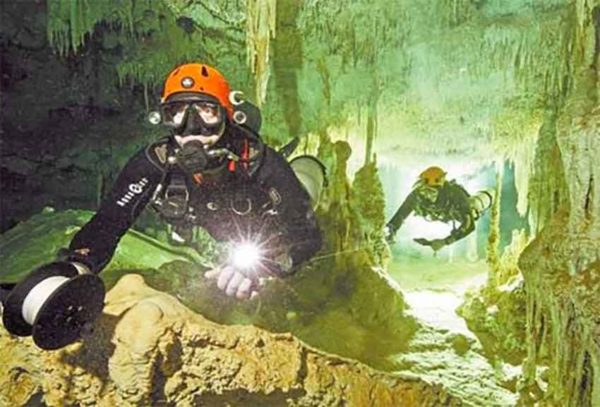The Yucatan Peninsula was the cradle of the Mayan culture, here we can find astounding archeological zones that marvels the world with their architecture. In addition, it is known that in this place there is a variety of “cenotes” underwater caves that the Mayas occupied to perform rituals.
Last year, the “Great Mayan Aquifer project” after 10 months of work found the world’s largest underwater cave, reports Quintana Roo Speleological Survey.
This cave is located in Tulum and is named “Sac Actun” which has an extension of 347 kilometers. This extension is compared to the distance between Chetumal and Cancun.
According to granacuiferomaya.org, researchers found that “Sac Actun” was linked to another underwater cave called “Dos Ojos” (two eyes). By itself, “Sac Actun” has an extension of 263 kilometers while “Dos Ojos” has 84 kilometers, but when joined together they make up the largest underwater cave.

The rules of speleology (science that studies the origin and formation of caves) mention that when two caves connect, the larger cave absorbs the smaller one so the two take the name of the larger. This is why “Dos Ojos” disappears to give way to “Sac Actun”, explains granacuiferomaya.org.
According to information from the Government of Mexico, this is a set of interconnected cavities that, if its connection with other nearby systems is proven, could be a “monster” of up to a thousand kilometers that in its entrails houses human and animal remains from different eras.
Within this underwater cave, remains and objects have been found that could be between 12,000 and 15,000 years old.
Among the remains found in “Sac Actun”, are skeletons of extinct animals such as the giant sloths as well as Mayan ceramic vessels, among other objects that could give more details about the customs and rites carried out by the Mayas in Yucatan.

With information from: Gran Acuifero Maya, Instituto Nacional de Antropología e Historia (INAH)
San Miguel Times
Newsroom

